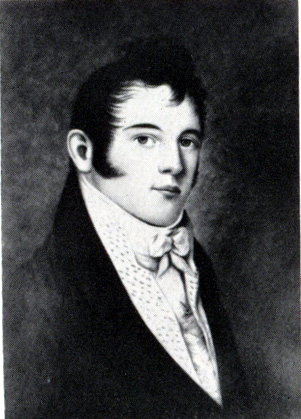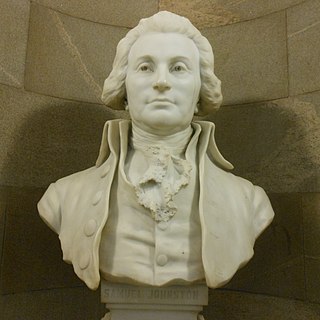Membership of the assembly
House of Commons members
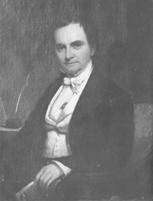
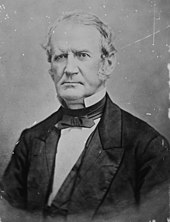
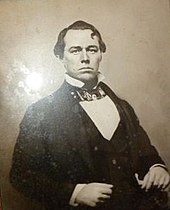


There were 137 delegates in the House of Commons, two from each of the 65 counties and one from each of the seven towns/Districts. They elected William H. Haywood, Jr. from Wake County as their Speaker and Charles Manly from Wake County as their Clerk. [3] [1] [2] [6]
| County/Town | Delegate |
|---|---|
| Anson | Jeremiah Benton |
| Anson | John A. McRae |
| Ashe | Jonathan Horton |
| Ashe | Taliaferro Witcher |
| Beaufort | Henry S. Clark |
| Beaufort | S. Smallwood |
| Bertie | John F. Lee |
| Bertie | Thomas H. Speller |
| Bladen | B. Fitzrandolph |
| Bladen | Robert Lyon |
| Brunswick | Abram Baker |
| Brunswick | William R. Hall |
| Buncombe | Nathaniel Harrison |
| Buncombe | Joseph Pickett |
| Burke | Edward J. Erwin |
| Burke | James H. Perkins |
| Cabarrus | George Barnhardt |
| Cabarrus | Levi Hope |
| Camden | J.S. Burgess |
| Camden | James N. McPherson |
| Carteret | James W. Hunt |
| Carteret | Thomas Marshall |
| Caswell | Stephen Dodson |
| Caswell | Littleton A. Gwinn |
| Chatham | R.C. Cotten |
| Chatham | John S. Guthrie |
| Chowan | William Beyrum |
| Chowan | Thomas S. Hoskins |
| Columbus | Thomas Frink |
| Columbus | Marmaduke Powell |
| Craven | John M. Bryan |
| Craven | Abner Neale |
| Cumberland | Dillon Jordan |
| Cumberland | David McNeill |
| Currituck | Joshua Harrison |
| Currituck | Alfred Perkins |
| Davidson | Charles Brummell |
| Davidson | George Smith |
| Duplin | James K. Hill |
| Duplin | Owen Rand Kenan |
| Edgecombe | S. DeBerry |
| Edgecombe | Joseph J. Pipkin |
| Franklin | Thomas Howerton |
| Franklin | Simon G. Jeffreys |
| Gates | Lemuel Riddick |
| Gates | Whitmell Stallings |
| Granville | Charles R. Eaton |
| Granville | Elijah Hester |
| Greene | James Harper |
| Greene | Thomas Hooker |
| Guilford | Ralph Gorrell [10] |
| Guilford | Jesse H. Lindsay |
| Halifax | Sterling H. Gee |
| Halifax | William M. West |
| Haywood | John L. Smith |
| Haywood | Joseph H. Walker |
| Hertford | R.C. Borland |
| Hertford | Kenneth Rayner |
| Hyde | R.M.G. Moore |
| Hyde | John L. Swindell |
| Iredell | James A. King |
| Iredell | Solomon Lowdermilk |
| Johnston | James Tomlinson |
| Johnston | Kedar Whitley |
| Jones | John H. Hammond |
| Jones | James W. Howard |
| Lenoir | Windall Davis |
| Lenoir | Council Wooten |
| Lincoln | Henry Cansler |
| Lincoln | Michael Hoke |
| Macon | James W. Gwinn |
| Macon | Jacob Siler |
| Martin | Raleigh Roebuck |
| Martin | Alfred M. Slade [11] |
| Mecklenburg | J.A. Dunn |
| Mecklenburg | James M. Hutchison |
| Montgomery | William Harris |
| Montgomery | Peter R. Lilley |
| Moore | John O. Kelly |
| Moore | John A.D. McNeill |
| Nash | Samuel Brown |
| Nash | Ford Taylor |
| New Hanover | Charles Henry |
| New Hanover | John R. Walker |
| Northampton | William E. Crump |
| Northampton | Roderick B. Gary |
| Onslow | Daniel S. Sanders |
| Onslow | Daniel Thompson |
| Orange | James Forest |
| Orange | John Stockard |
| Pasquotank | Thomas Bell |
| Pasquotank | John B. Muse |
| Perquimans | Josiah T. Granberry |
| Perquimans | Jonathan H. Jacocks |
| Person | Robert Jones |
| Person | James M. Williamson |
| Pitt | J.L. Foreman |
| Pitt | Macon Moye |
| Randolph | William B. Lane |
| Randolph | Zebedee Rush |
| Richmond | John R. Buie |
| Richmond | George Thomas |
| Robeson | Oliver K. Tuton |
| Robeson | Alexander Watson |
| Rockingham | Blake W. Brasswell |
| Rockingham | Philip Irion |
| Rowan | John Clements |
| Rowan | Jesse W. Wharton |
| Rutherford | John H. Bedford |
| Rutherford | Joseph M.D. Carson |
| Sampson | Isaac W. Lane |
| Sampson | Dickson Sloan |
| Stokes | Caleb H. Matthews |
| Stokes | John F. Poindexter |
| Surry | Thomas L. Clingman |
| Surry | Mordecai Fleming |
| Tyrrell | Thomas Hassell |
| Tyrrell | Charles McCleese |
| Wake | William Henry Haywood, Jr. |
| Wake | Allen Rogers |
| Warren | John H. Hawkins |
| Warren | Thomas I. Judkins |
| Washington | A. Davenport |
| Washington | Uriah H. Swanner |
| Wayne | Calvin Coor |
| Wayne | Giles Smith |
| Wilkes | William Horton |
| Wilkes | Benjamin F. Martin |
| Yancey | Samuel Byrd |
| Yancey | May Jervis |
| Town of Edenton | Hugh W. Collins |
| Town of Fayetteville | Thomas L. Hybart |
| Town of Halifax | Robert C. Bond |
| Town of Hillsborough | William Alexander Graham |
| Town of New Bern | Matthias Evans Manly |
| Town of Salisbury | William Chambers |
| Town of Wilmington | Edward Bishop Dudley [note 2] [12] |
Senate members
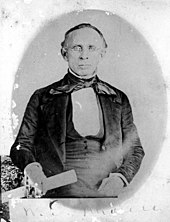
There were 65 Senators in the Senate, one from each of the 65 counties in North Carolina. [4] [1] [2]
| County/Town | Senator |
|---|---|
| Anson | Alexander Little |
| Ashe | John Gambill |
| Beaufort | James O'Kelly Williams |
| Bertie | Alexander W. Mebane |
| Bladen | George Cromartie |
| Brunswick | Frederick Jones Hill [13] |
| Buncombe | Hodge Rabun |
| Burke | Peter Ballew |
| Cabarrus | David Long |
| Camden | Thomas Tillett |
| Carteret | James West Bryan [14] |
| Caswell | James Kerr |
| Chatham | Hugh McQueen |
| Chowan | William Bullock |
| Columbus | Caleb Stephens |
| Craven | Thomas J. Pasteur |
| Cumberland | Duncan McCormick |
| Currituck | Daniel Lindsay, Jr. |
| Davidson | John A. Hogan |
| Duplin | John E. Hussey |
| Edgecombe | Benjamin Sharpe |
| Franklin | Henry G. Williams |
| Gates | William W. Cowper |
| Granville | James Wyche |
| Greene | Wyatt Moye |
| Guilford | James T. Morehead |
| Halifax | Andrew Joyner [15] |
| Haywood | Ninian Edmonston |
| Hertford | John Vann |
| Hyde | William Selby |
| Iredell | John M. Young |
| Johnston | Josiah Houlder |
| Jones | James Harrison |
| Lenoir | William Dunn Moseley [16] |
| Lincoln | John B. Harry |
| Macon | Benjamin S. Brittain |
| Martin | Jesse Cooper |
| Mecklenburg | Stephen Fox |
| Montgomery | Reuben Kendall |
| Moore | Cornelius Dowd |
| Nash | Samuel L. Arrington |
| New Hanover | Louis H. Marsteller |
| Northampton | William Moody |
| Onslow | David W. Simmons |
| Orange | Joseph Allison |
| Pasquotank | Frederick Whitehurst |
| Perquimans | Jesse Wilson |
| Person | Isham Edwards |
| Pitt | Alfred Moye |
| Randolph | Alfred Staley |
| Richmond | Alexander Martin |
| Robeson | Malcolm Patterson |
| Rockingham | David S. Reid |
| Rowan | Thomas Gilchrist Polk [17] |
| Rutherford | Alanson W. Moore |
| Sampson | Edward C. Gavin |
| Stokes | Matthew R. Moore |
| Surry | Harrison M. Waugh |
| Tyrrell | George H. Alexander |
| Wake | Samuel Whitaker |
| Warren | Weldon Nathaniel Edwards [18] |
| Washington | John B. Beasley |
| Wayne | John Exum |
| Wilkes | James Wellborn/Welborn [19] |
| Yancey | Thomas Baker |

